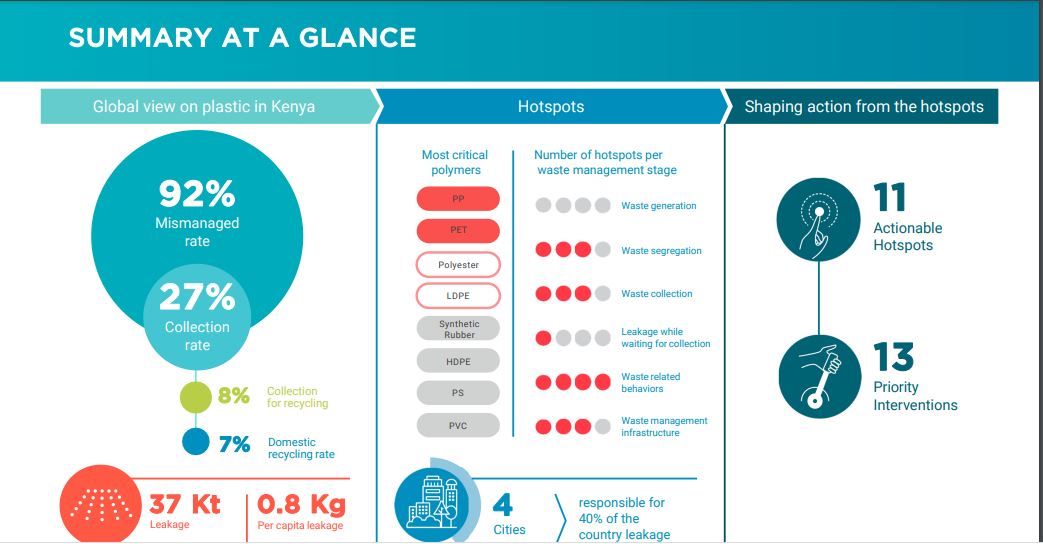Hotspots: They refer to the most relevant plastic polymers, applications, industrial sectors, regions or waste management stages causing the leakage of plastics into the environment (including land, air, water and marine environment), as well as associated impacts, through the life cycle of plastic products.
Interventions: They are tangible actions that can be taken to mitigate hotspots and are to be prioritised and designed to address the most influential hotspots in the plastic value chain.
Instruments: They are the ways an intervention may be practically implemented through specific regulatory, financial or informative measures, in light of context factors such as country dynamics and existing measures. As an illustrative example, a country may identify “mismanaged polyethylene bottles” as one of its hotspots. A relevant intervention may be an increase in bottle collection rate. A relevant instrument may be to instate a bottle return deposit scheme. Full Report


